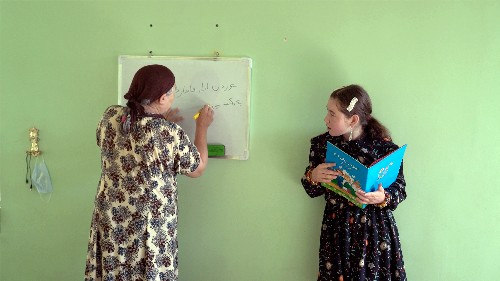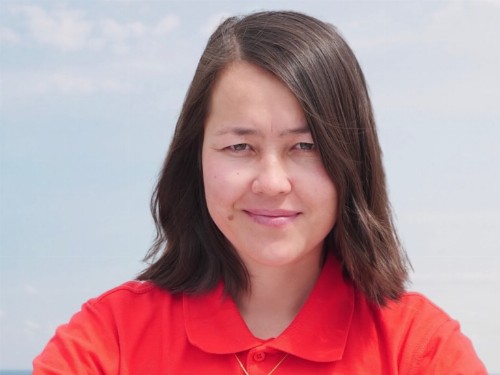
ShareDoc

Desafortunadamente, esta página no está disponible en español. Pedimos disculpas por las molestias.






HAWA is the main character of the film. She was forces into marriage when she was 13. At the age of 52, she decides she wants to start to learn to read and write after all. She opens her own textile business.
NAJIBA NOORI (author, director) was born Afghanistan. She began working for media organisations as a volunteer when she was just 15. She has made reports and photo stories for various organisations and agencies, including the AFP, Huffington Post, MSF, FMIC, NRC and UN Women in Afghanistan. She participated at the Close-Up program 2020-2021 and at IDFA Academy 2022. She joined AFP as a video journalist n 2019. In 2021 she had to flee to France. WRITING HAWA is her first documentary.
RASUL NOORI is the co-director of the film. He was born in Afghanistan too and graduated in journalism in Kabul. He has made several short videos for NRC, GIZ, and FMIC in Afghanistan. He was one of the cinematographers of the short film “Hoof” with the American Company Hungry Man in Bamiyan.
The film Writing Hawa kickstarts an impact campaign that unites the Afghan diaspora and (other) decision-makers to change the lives of women and girls in Afghanistan. Please find everything we have planned at 'Achieved Impact'. Your donation will help you make this happen. Want to do more, please join us! writinghawa.nl/what-can-i-do - Thanks for your help!
Unfortunately we cannot load this video because of your cookie preferences. Please allow third-party cookies if you want to view this video. Visit the Cookie Policy page.
Filmed over five years, is the story of three generations of Hazara women from the same family in Afghanistan. With unique access, director Najiba Noori films her mother Hawa and her niece Zahra in their aspirations to emancipate themselves from patriarchal traditions.
Forced into marriage as a child, Hawa is already 52 years old when she can truly start learning to read and write. With the support of her daughter, she opens a small textile business: she looks for traditional Hazara embroideries in the Bamiyan region and turns them into modern dresses to sell in Kabul. Hawa eventually saves her granddaughter Zahra from her abusive father in a remote village and brings her to the capital Kabul. There, they study together and make plans for the future.
However, the takeover by the Taliban in August 2021 turns the lives of the three women upside down: Zahra has to return to the village she escaped from, and Najiba is forced to flee the country, to live as a refugee in France. From afar, she helps Hawa continue to fight for her dreams.
The film is premiering in the international competition of IDFA (International Documentary Film Festival Amsterdam) in november 2024.
And for us the film is about more than the film.
The film kickstarts an impact campaign that unites the Afghan diaspora and (other) decision-makers to change the lives of women and girls in Afghanistan.
www.writinghawa.com
Utilizamos cookies de terceros en nuestro sitio web. Nos ayudan a analizar el comportamiento de los usuarios, para así poder mejorar nuestro sitio.
Puede retirar su consentimiento en cualquier momento visitando la página de Política de Cookies.
 ES
ES